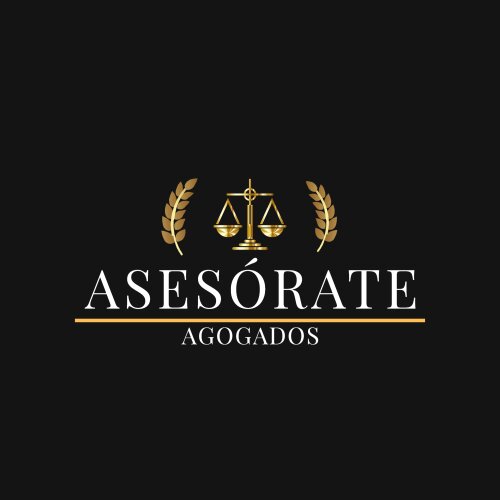Best State, Local, and Municipal Law Lawyers in Colombia
Share your needs with us, get contacted by law firms.
Free. Takes 2 min.
Or refine your search by selecting a city:
List of the best lawyers in Colombia
About State, Local, and Municipal Law in Colombia
State, Local, and Municipal Law in Colombia governs the regulations and responsibilities of local governments, including departments and municipalities. It outlines how these entities interact with national legislation and manage local issues such as public resources, land use planning, and public services. This body of law is crucial in promoting decentralization, ensuring that local governments have the autonomy to address specific regional needs effectively. It is primarily governed by the Colombian Constitution, various codes, and numerous specific laws regarding public administration, fiscal policy, and territorial development.
Why You May Need a Lawyer
Legal assistance in the field of State, Local, and Municipal Law can be vital in several situations, including:
- Land Use and Zoning Issues: Resolving disputes or clarifying regulations related to building permits, land use, and zoning restrictions.
- Public Contracting: Navigating the complexities of public bidding processes or addressing contractual disputes with municipal entities.
- Municipal Tax Matters: Understanding local tax obligations and addressing any related legal disputes.
- Administrative Procedures: Handling permits and licenses required for business operations or other activities within a municipality.
- Public Resource Management: Advising on legal aspects related to the use and allocation of local natural resources.
Local Laws Overview
Local laws in Colombia vary significantly from one region to another, reflecting the country's diverse cultural and territorial landscape. Key aspects include:
- Decentralization: Ensures that local governments have some degree of legislative autonomy to address region-specific issues.
- Land Use Regulations: Municipalities are responsible for developing and enforcing zoning laws, urban planning, and environmental regulations.
- Public Services: Local governments manage essential services such as water supply, sanitation, roads, and public transport.
- Taxation: Municipalities can implement local taxes, often used to fund community projects and public services.
- Citizen Participation: Mechanisms that allow community involvement in local decision-making processes are integrated into municipal governance.
Frequently Asked Questions
What is the primary legal framework for local governments in Colombia?
The primary legal framework for local governments in Colombia is outlined in the Colombian Constitution, which sets forth the principles of decentralization and local autonomy.
How do municipalities generate revenue?
Municipalities generate revenue through local taxes, service fees, state transfers, and occasionally, income from municipally owned enterprises.
What role do citizens play in municipal governance?
Citizens in Colombia have several mechanisms for involvement in municipal governance, such as public hearings, local councils, and participatory budgeting processes.
Can a local law override a national law?
No, local laws cannot override national laws. However, they can complement them by providing more specific regulations that cater to local needs.
What are the most common legal disputes involving municipalities?
Common disputes include land use and zoning conflicts, public contract bids, and issues concerning municipal taxes and public resources management.
Is legal counsel necessary when dealing with the municipal government?
While not always necessary, legal counsel can be beneficial when navigating complex regulations or resolving disputes with municipal authorities.
How are public services managed at the local level?
Public services are typically managed by the municipal government, which may provide these services directly or outsource them to private entities.
How can a business obtain necessary municipal permits?
Businesses must apply through the relevant municipal departments to obtain necessary permits, following the procedures and requirements laid out by local regulations.
What are the penalties for failing to comply with municipal regulations?
Penalties can range from fines and sanctions to revocation of permits, depending on the severity and nature of the non-compliance.
How is land use determined at the municipal level?
Land use is determined by local zoning laws and urban development plans that align with broader national and departmental regulations.
Additional Resources
For those seeking further information on State, Local, and Municipal Law in Colombia, consider consulting the following resources:
- Ministry of Interior: Offers information on decentralization and local governance.
- National Planning Department (DNP): Provides resources on territorial organization and development.
- Colombian Federation of Municipalities (FCM): Represents municipal interests and offers legal guidance.
- Local Government Websites: Access specific local regulations and contact details for municipal departments.
Next Steps
If you need legal assistance in the area of State, Local, and Municipal Law in Colombia, consider the following steps:
- Research: Understand your legal issue and gather relevant documentation.
- Consult a Lawyer: Seek advice from a lawyer specializing in local law to evaluate your situation and discuss your options.
- Engage with Local Authorities: Initiate contact with the relevant municipal departments if required, either on your own or with legal representation.
- Follow Legal Advice: Adhere to the legal guidance provided to ensure compliance and resolution of your issue.
Lawzana helps you find the best lawyers and law firms in Colombia through a curated and pre-screened list of qualified legal professionals. Our platform offers rankings and detailed profiles of attorneys and law firms, allowing you to compare based on practice areas, including State, Local, and Municipal Law, experience, and client feedback.
Each profile includes a description of the firm's areas of practice, client reviews, team members and partners, year of establishment, spoken languages, office locations, contact information, social media presence, and any published articles or resources. Most firms on our platform speak English and are experienced in both local and international legal matters.
Get a quote from top-rated law firms in Colombia — quickly, securely, and without unnecessary hassle.
Disclaimer:
The information provided on this page is for general informational purposes only and does not constitute legal advice. While we strive to ensure the accuracy and relevance of the content, legal information may change over time, and interpretations of the law can vary. You should always consult with a qualified legal professional for advice specific to your situation.
We disclaim all liability for actions taken or not taken based on the content of this page. If you believe any information is incorrect or outdated, please contact us, and we will review and update it where appropriate.
Browse state, local, and municipal law law firms by city in Colombia
Refine your search by selecting a city.















